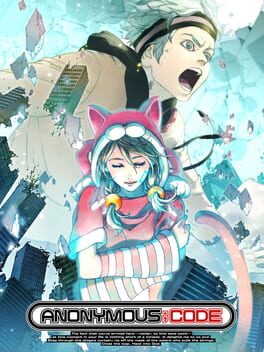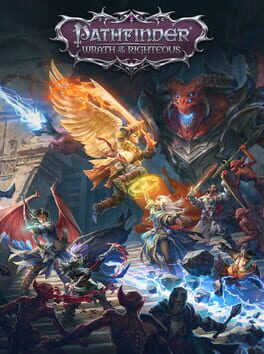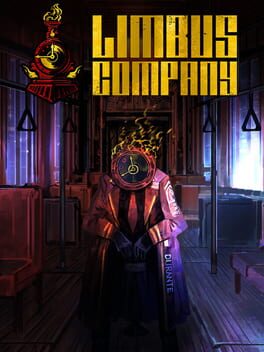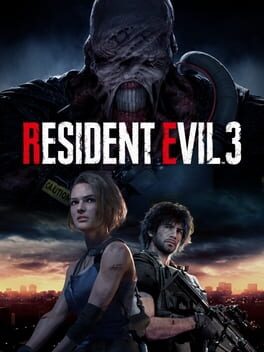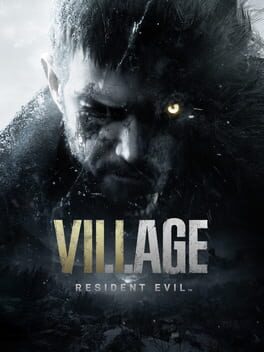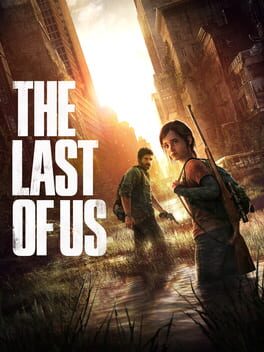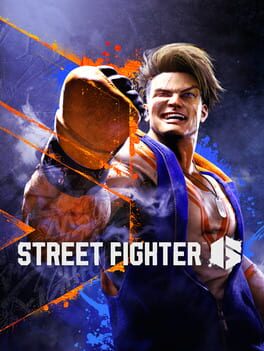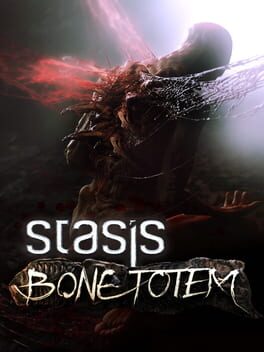2020
This review contains spoilers
Partway through Chapter 1, Omori had already disappointed me in the way it refused to balance, in any way whatsoever, its diegetic and thematic narrative. The prologue hit very strongly by luring the player into a sense of security and cuteness with all the sugary vibes, readying the stage for the rug-pull that would snap the story back to reality and kickstart the “hero’s” journey. All the pieces showed thus far, metaphorical in their nature, would soon be paralleled by their counterpart in the true world of Faraway City, highlighting the complex coping mechanism that Sunny built for himself to escape a reality that had all the elements he once cherished and loved, but wrong, broken, different, and for the most part due to his own faults. While not groundbreaking, this is a very solid foundation for the fiction and meta-fiction alike, again a very intriguing and well built prologue.
But then the game stumbles, misses almost all the subsequent steps by acknowledging that the plot is happening during the countdown to Sunny’s departure from the city, his crime never to be discovered in the ultimate avoidance of responsibility, but at the same time the actual game still takes place in the dream world that Sunny built as Omori. This is a tonally deaf and utterly baffling narrative choice, especially because it rarely even matters by that point what goes on in the inner mind of the murderer. The pieces are already in motion, the dream world had already achieved its goal by stalling the player, as it stalled Sunny, in the incipit of the game and yet, long after opening the door to accept the real world again, we are still asked to travel inside a whale’s belly and fight magical slime girls. Lightening the mood to unwind after a big revelation is one way to show restrain for the emotional highs that Omori is capable of, but following an hour of strong bonding between the main characters, catching up after four years of separation, with a three hour castle dungeon to solve Sweetheart’s pointless marriage struggles is effectively blue-balling, none of this ever matters. The dream contents not strictly tying to any meaningful allegory wouldn’t even be an issue, if they gave insight to the characters, were engaging, fun or quirky in some way, but none of this is true; what actually happens is that the game, for ¾ of its duration, chooses to ignore what it’s actually trying to tell to become a distractingly standard RPG.
The last stretch of the game, as well as its most impactful scenes, are top class for the genre, with their stellar production values and emotionally charged writing, but anything in between is just fluff, cute fluff but nonetheless unnecessary padded fluff. The one great thing about even the worst of 16bit indie RPGs made in the last two decade is that they are straight to the point to a fault, Omori on the other hand feels like it needs to be 20 hours long because then it would be a real video game like the big boys on the Steam front-page, I cannot find any other reasonable explanation for all its disjointedness.
But then the game stumbles, misses almost all the subsequent steps by acknowledging that the plot is happening during the countdown to Sunny’s departure from the city, his crime never to be discovered in the ultimate avoidance of responsibility, but at the same time the actual game still takes place in the dream world that Sunny built as Omori. This is a tonally deaf and utterly baffling narrative choice, especially because it rarely even matters by that point what goes on in the inner mind of the murderer. The pieces are already in motion, the dream world had already achieved its goal by stalling the player, as it stalled Sunny, in the incipit of the game and yet, long after opening the door to accept the real world again, we are still asked to travel inside a whale’s belly and fight magical slime girls. Lightening the mood to unwind after a big revelation is one way to show restrain for the emotional highs that Omori is capable of, but following an hour of strong bonding between the main characters, catching up after four years of separation, with a three hour castle dungeon to solve Sweetheart’s pointless marriage struggles is effectively blue-balling, none of this ever matters. The dream contents not strictly tying to any meaningful allegory wouldn’t even be an issue, if they gave insight to the characters, were engaging, fun or quirky in some way, but none of this is true; what actually happens is that the game, for ¾ of its duration, chooses to ignore what it’s actually trying to tell to become a distractingly standard RPG.
The last stretch of the game, as well as its most impactful scenes, are top class for the genre, with their stellar production values and emotionally charged writing, but anything in between is just fluff, cute fluff but nonetheless unnecessary padded fluff. The one great thing about even the worst of 16bit indie RPGs made in the last two decade is that they are straight to the point to a fault, Omori on the other hand feels like it needs to be 20 hours long because then it would be a real video game like the big boys on the Steam front-page, I cannot find any other reasonable explanation for all its disjointedness.
2023
Limbo was once given for free on steam, Inside was gifted to me, so was Cocoon. I was never personally interested in any of these titles yet I had to play them, if anything out of courtesy. I have nothing against Jeppe Carlsen, I respect that he is able to fully commit to the games he wants to make, but from the moment I pressed start, without even knowing he was behind this game, I was already yawning, I can physically perceive my body aging and withering while playing this.
Edit: I got over myself. The game is fine to good for what is wants to do. Still boring
Edit: I got over myself. The game is fine to good for what is wants to do. Still boring
2022
2016
During the 90s, Japan had one of the most interesting outputs in its pop culture. The country was going through the shitter, the bubble had burst and the economy was falling down the drain, many elders resenting modernization, as they saw it as the harbinger of ruin for the traditional values of the nation, and many young people blaming the so-called baby-boomers for causing the economy to, inevitably, shift this way. Technology, Japan vanguard’s industry and pride and joy for many years, was now a symbol of a world hurrying towards its demise; authors across many media between Kurosawa Kyoshi, Okazaki Kyoko, Oshii Mamoru and so on, all lived through this period on a wave of pessimism and skepticism toward the future. Humanity was going to end, and humanity was to blame for it.
Enter stage left Suda Goichi, dropping The Silver Case just at the turn of the century, in the year 1999, as the ultimate side-note of this societal decline. The world of the Silver Case is bleak, unsettling, sad, weird, oftentimes the characters will talk and make little sense to each other between slurs, asides and weird mental lapses (the subpar translation not really helping with this one), and the whole cast seems completely lost rationalizing what’s going on.
The plot revolves around a murder case (plus several other investigations) that slowly unravels into a much more complex web of intrigues and twists, so convoluted that, whenever a character appears to know exactly what has happened and why, it sounds almost farcical. Everyone simultaneously understands and ignores what is actually going on at all times, the mood is made of pure confusion and people sounding absolutely sure of what they are talking about, whilst to the players is conveyed the feeling that nothing ever makes sense. It really oozes the confounded angst of living through a decade of dark age and social isolation. The cast ultimately doesn’t matter, they might share cute, poignant and touching vignettes between them but there is no singular central character that ever shows any emotion or growth; most of them are passive actors in a play that has to be acted for the sake of the world having to keep turning around.
Young people find solace in their shared loneliness and turn to the internet to feel accepted and comforted while the elderly fight to handle the strings of a wooden puppet they once built but it’s already rotten and fallen to pieces. There is a lot to unpack in The Silver Case and how much of its despair was subsequently answered, by Suda himself, in Flower, Sun and Rain a couple of years later. If The Silver Case reads like the societal collapse of morality and reason seen in the post-apocalypse of Eden: It’s an Endless World, then Flower, Sun and Rain is the peaceful twilight where life matters in the here and now of the post-apocalypse in Yokohama Kaidashi Kikou.
Kill the past, it will never make much sense the more you think about it, once you acknowledge it it’s already time to move on.
Enter stage left Suda Goichi, dropping The Silver Case just at the turn of the century, in the year 1999, as the ultimate side-note of this societal decline. The world of the Silver Case is bleak, unsettling, sad, weird, oftentimes the characters will talk and make little sense to each other between slurs, asides and weird mental lapses (the subpar translation not really helping with this one), and the whole cast seems completely lost rationalizing what’s going on.
The plot revolves around a murder case (plus several other investigations) that slowly unravels into a much more complex web of intrigues and twists, so convoluted that, whenever a character appears to know exactly what has happened and why, it sounds almost farcical. Everyone simultaneously understands and ignores what is actually going on at all times, the mood is made of pure confusion and people sounding absolutely sure of what they are talking about, whilst to the players is conveyed the feeling that nothing ever makes sense. It really oozes the confounded angst of living through a decade of dark age and social isolation. The cast ultimately doesn’t matter, they might share cute, poignant and touching vignettes between them but there is no singular central character that ever shows any emotion or growth; most of them are passive actors in a play that has to be acted for the sake of the world having to keep turning around.
Young people find solace in their shared loneliness and turn to the internet to feel accepted and comforted while the elderly fight to handle the strings of a wooden puppet they once built but it’s already rotten and fallen to pieces. There is a lot to unpack in The Silver Case and how much of its despair was subsequently answered, by Suda himself, in Flower, Sun and Rain a couple of years later. If The Silver Case reads like the societal collapse of morality and reason seen in the post-apocalypse of Eden: It’s an Endless World, then Flower, Sun and Rain is the peaceful twilight where life matters in the here and now of the post-apocalypse in Yokohama Kaidashi Kikou.
Kill the past, it will never make much sense the more you think about it, once you acknowledge it it’s already time to move on.
2023
The most visually joyful game ever made about how terrible is a society run by coffee addicts.
Hi-Fi Rush is a gem of a spectacle fighter hack-n-slash, it is entirely devoted to the idea of feeling the beat, following the rhythm and grooving while styling over your enemies, with a Devil-May-Cry-laundry-list of options at the player’s disposal. On some stages, the whole shtick may become way too cluttered for its own good and it’s hard to react precisely to each visual and audio stimuli, but generally the game will rarely put too much enemies in one room for this to be the case. And even then the loads of content in each scenario is just proof of the intense love that was put into this world; there are no sections, rooms or fights that appear lazily done or put there just to pad the game. The pacing is frenetic when it needs to be and leaves a lot of room for the player to breathe between each setpiece, with an art style and soundtrack that are the epitome of fun!
Thematically, the game is about the escapades of Chai and the merry gang of social disruptors trying to improve the lives of the general population by wrecking the corporation responsible for drowning the world in consumerism. It is a beautiful coincidence that, just a few months after Cyberpunk Edgerunners tried the colourful approach to cyberpunk just to beat the dead horse of the status quo again and generally doing nothing with its genre, a simple video game made with loads of passion is capable of presenting, with light-heartedness but enough care, the issue (overtly rich delusional egomaniacs), the solution (beating them a lot with a stick) and the lesson (actually achieving something of value in life requires effort, not nepotism, and being led by the latter freaking sucks).
Moreso, Hi-Fi Rush is also a majorly significant title for the year it released in 2023, and what it signifies for the market of video games. As Ben "Yahtzee" Croshaw eloquently put at the time the game came out, “the way it was dropped on us felt for me like an act of surrender. “OK, fine,” Bethesda seemed to be saying. “We officially give up trying to convince you that what you want is overpriced mediocre crap that’s a thousand hours long. Here’s a game that’s ten hours long but it’s thirty bucks and really fucking good.” And what do you know, it did gangbusters.”
Hi-Fi Rush is a gem of a spectacle fighter hack-n-slash, it is entirely devoted to the idea of feeling the beat, following the rhythm and grooving while styling over your enemies, with a Devil-May-Cry-laundry-list of options at the player’s disposal. On some stages, the whole shtick may become way too cluttered for its own good and it’s hard to react precisely to each visual and audio stimuli, but generally the game will rarely put too much enemies in one room for this to be the case. And even then the loads of content in each scenario is just proof of the intense love that was put into this world; there are no sections, rooms or fights that appear lazily done or put there just to pad the game. The pacing is frenetic when it needs to be and leaves a lot of room for the player to breathe between each setpiece, with an art style and soundtrack that are the epitome of fun!
Thematically, the game is about the escapades of Chai and the merry gang of social disruptors trying to improve the lives of the general population by wrecking the corporation responsible for drowning the world in consumerism. It is a beautiful coincidence that, just a few months after Cyberpunk Edgerunners tried the colourful approach to cyberpunk just to beat the dead horse of the status quo again and generally doing nothing with its genre, a simple video game made with loads of passion is capable of presenting, with light-heartedness but enough care, the issue (overtly rich delusional egomaniacs), the solution (beating them a lot with a stick) and the lesson (actually achieving something of value in life requires effort, not nepotism, and being led by the latter freaking sucks).
Moreso, Hi-Fi Rush is also a majorly significant title for the year it released in 2023, and what it signifies for the market of video games. As Ben "Yahtzee" Croshaw eloquently put at the time the game came out, “the way it was dropped on us felt for me like an act of surrender. “OK, fine,” Bethesda seemed to be saying. “We officially give up trying to convince you that what you want is overpriced mediocre crap that’s a thousand hours long. Here’s a game that’s ten hours long but it’s thirty bucks and really fucking good.” And what do you know, it did gangbusters.”
2023
2009
2020
Compared to other entry in the franchise, Resident Evil 3 Remake is not a tale about facing adverse odds through camaraderie, but a story of a rivalry. Throughout the game, the fight between Jill Valentine and the aptly named Nemesis is always at the centre of the scene, a fight which is not only physical but ideological. Coming from two opposing yet equally bad factions, the shady Umbrella corporation and the American police force, Jill and the Nemesis face each other at the moment of the greatest divide for Raccoon City, and the issue at hand being: should a private corporation be given endless funding to produce a weapon to kill all human life on the planet? Also, there is a zombie apocalypse.
Jill and the Nemesis clearly have diverging opinions on the matter, thus the impasse between the two is formed but, as much as this stalemate is fascinating, what really elevates RE3R is the character development of the Nemesis himself. We learn late into the game that the Nemesis was created to be controlled with a brain parasite, a clear metaphor for modern day brain parasites that control us all, like Twitter. He is an inhuman being with no free will nor desire of his own, a true redditor, shielded in black and covered from head to toe the first time we meet him, metaphorically and literally blind to what is happening in front of him. It is only through Jill that the layers around the Nemesis are gradually peeled off, by repeatedly setting him on fire, thus shedding unto him a light of clarity, which in turn reveals his real form both to us and to himself. The Nemesis is, of course, resistant to this at first, scared of having to question his own life up to that point, having lived for a whole of three days before meeting Jill. He tries to debate Jill’s facts and logics using his own feelings on the situation, and a rocket launcher. His flaws are obvious for all to see, he tries to mansplain his reasoning about the good that Umbrella can achieve by brutally murdering Jill Valentine, but slowly he can’t help but develop a begrudging respect for her.
It is only after being drowned in acid that he finally lets his heart out, bare for all to see and fry with a rail-gun, maybe defeated in his ideas, but nonetheless the Nemesis knows that he has been understood by his peers, and that recognition is what ultimately matters. He may be a gargantuan monster capable of growing ten stories tall and full of filthy appendages, but at the end of the day he is human, just like us.
Resident Evil 3 Remake is about humanity, the rivalry that may form between men and women, and how the key to succeed together is through mutual understanding. What a beautiful game.
Minus one star because the fucking dogde button never works.
Jill and the Nemesis clearly have diverging opinions on the matter, thus the impasse between the two is formed but, as much as this stalemate is fascinating, what really elevates RE3R is the character development of the Nemesis himself. We learn late into the game that the Nemesis was created to be controlled with a brain parasite, a clear metaphor for modern day brain parasites that control us all, like Twitter. He is an inhuman being with no free will nor desire of his own, a true redditor, shielded in black and covered from head to toe the first time we meet him, metaphorically and literally blind to what is happening in front of him. It is only through Jill that the layers around the Nemesis are gradually peeled off, by repeatedly setting him on fire, thus shedding unto him a light of clarity, which in turn reveals his real form both to us and to himself. The Nemesis is, of course, resistant to this at first, scared of having to question his own life up to that point, having lived for a whole of three days before meeting Jill. He tries to debate Jill’s facts and logics using his own feelings on the situation, and a rocket launcher. His flaws are obvious for all to see, he tries to mansplain his reasoning about the good that Umbrella can achieve by brutally murdering Jill Valentine, but slowly he can’t help but develop a begrudging respect for her.
It is only after being drowned in acid that he finally lets his heart out, bare for all to see and fry with a rail-gun, maybe defeated in his ideas, but nonetheless the Nemesis knows that he has been understood by his peers, and that recognition is what ultimately matters. He may be a gargantuan monster capable of growing ten stories tall and full of filthy appendages, but at the end of the day he is human, just like us.
Resident Evil 3 Remake is about humanity, the rivalry that may form between men and women, and how the key to succeed together is through mutual understanding. What a beautiful game.
Minus one star because the fucking dogde button never works.
Ethan Winters is the most unserious person to ever live, the James Sunderland of slapstick comedy. Compared to Chris Redfield punching a boulder inside a volcano, or whatever Leon Kennedy is up to anytime he’s on screen, Ethan’s storylines are always presented as very grave and down-to-earth, the tale of a family man trying to rescue his wife and daughter from unspeakable horrors. Then you get to the cutscene where he faces monsters the size of an apartment complex or psychotic murderers and he just looks them straight in the eyes, saying cliched, cringe one-liners, and telling them to fuck off. Chop one of his hands off, gouge his legs and arms with hooks, throw him off a building, and he just gets back up, he never cares, Ethan Winters always, always gets the tone of every scene he’s in wrong. I don’t know why he is like this, but I love him for that, he might not be the most compelling character in the Resident Evil franchise but damn is it entertaining watching him suffer and squirm in his own blood.
2019
The thing that makes me always come back to the Resident Evil series, aside from the masterful level design and crazy plot lines, is that, fundamentally, I am a massive coward. I’m scared of pretty much everything in life. I love the horror genre because it makes me feel connected to my vulnerabilities, and stories like Silent Hill, Rule of Rose, Pathologic, Hello Charlotte, Shining, Night of the Living Dead, Possession, Kwaidan, Annihilation, etc somehow give me comfort and reason to explore myself about it. Even as an adult, I always struggle at the beginning of horror games because, when done good, it seems like nothing can be done, there is no hope, nothing to achieve, the world is just cruel and difficult to navigate and the next room will unavoidably kill me.
And then there’s Resident Evil. At the beginning, it is the bloody worst, always short on ammo, always killed by swarm of zombies, or lycans, or monsters, and encouraging as much as possible to run away from every danger. But also, it will always come the one moment where you are tested, with no escape or safe place to run back to, asked to prove if you really want to go on or just give up. Gun in hand and gathered your wits, the first boss crumbling to dust, you realize okay, I can actually do this.
Resident Evil is empowering just like that. It is not deep, nor cohesive, and very, very silly, lovingly so, but most of all it is a series of games about the moment you realize that it is possible to go on, you do have the strength, the mental fortitude to resist, you are getting out of here alive and the sun is going to rise over this brutal night. Nothing can ever defeat the human will to live.
It’s the best feeling ever.
And then there’s Resident Evil. At the beginning, it is the bloody worst, always short on ammo, always killed by swarm of zombies, or lycans, or monsters, and encouraging as much as possible to run away from every danger. But also, it will always come the one moment where you are tested, with no escape or safe place to run back to, asked to prove if you really want to go on or just give up. Gun in hand and gathered your wits, the first boss crumbling to dust, you realize okay, I can actually do this.
Resident Evil is empowering just like that. It is not deep, nor cohesive, and very, very silly, lovingly so, but most of all it is a series of games about the moment you realize that it is possible to go on, you do have the strength, the mental fortitude to resist, you are getting out of here alive and the sun is going to rise over this brutal night. Nothing can ever defeat the human will to live.
It’s the best feeling ever.
All in all, I enjoyed my time in RDR2, but going back I wouldn't buy it and play it again. It's nice looking world to explore and immerse yourself, squandered by the worst of Rstar game design.
Playing on PC, each time I booted up the game on pc I had to log into the Rstar social club because reasons. But whatever, that's barely mildly annoying. Then the game reverted my graphic settings at every launch, so I had to re-edit back everything, every time. But okay, I could live with that.
Now, let’s list how RDR2 allows you to partake in its “open world”:
1. I tried to turn off radar and directions for a more immersive experience in this beautiful game, and got a game over twice in the first mission because it's not enough to just move towards your destination, you have to guess and follow the ONE specific route you're supposed to take.
2. My first duel went with a tutorial on the bottom centre, a prompt on the bottom right and another tutorial on the top left, all at the same time. I got killed five times trying to process all the info. This one is on me I guess, but that's really a counterintuitive way to explain stuff.
3. There were two separate missions where I tried to sneak close to a target and capture them without problems, but I couldn't do that because I had to follow the prompts and learn the tutorials for catching them while they were running away, which basically means riding a horse, the first thing the game teaches you.
4. In fact, in multiple instances I tried to solve a boring mission using a bullet or, again, sneaking, but every time I tried the game then just went "X cannot be done now, come back later", so I can't even choose to fail.
5. Hunting is dogshit. Chasing around critters following smoke trails with my witcher sense is something I can get by in small amounts, but the legendary hunts, the ones that should feel more like a test of your hunting skill, all boil down to go to one specific point in the map, following the same three tracks each time and unloading three rifle cartridges into an animal brain. If anything, the legendary hunts should be the harder to track and easier to kill, not viceversa, what the fuck is wrong with you, Rstar?
6. Once I got my horse stuck into the woods and kept whistling for a good minute because I refused to accept this nonsense was possible. While whistling a lawman saw me and, for some reason, I was now wanted. Very immersive indeed.
7. Speaking of immersion, in Rstar endless bullshit quest for achieving realism, there are perfectly climbable slopes in the world that, despite being visibly walkable if you were a human being, just makes you slip no matter how you approach them, slow, fast, jumping, crouching, you cannot traverse otherwise realistically traversable paths.
Bullshit realism aside let's talk about the mission structure. It's terrible.
The storyline wouldn't work if Arthur wasn't the world's greatest doormat and if the gameplay allowed for choices (not choices about the narrative but regarding what tools to utilize for each situation), but that's apparently Rstar whole template. The best mission I've played up to chapter 3 was the one where Arthur had to get drunk with Lenny, not because it was necessarily a good mission, although it was funny, but because it stuck out into the endless bog of sameness that prevents any mission from being unique. One mission starts with Molly trying to open up about her personal life, and immediately she's cut off for a robbery with horse chases and shootouts, she’s not heard from for another 15 hours. That's the entirity of RDR2, which would be fine if the game was more upfront about it. Instead, there are missions with a legitimate interesting premise (a jail break, a fishing trip with friends, sheep hustling, train robberies, stealth infiltrations) but screw it, at some point it turns, unavoidably, in horse chases and shootouts, with dozens of bodies piling up, bloody hell. The open world does not matter, at all, just like in every GTA since 3 you can either play what is essentially House of Dead during each mission or go screw yourself elsewhere until you stop finding new activities to try.
And, oh boy, aren’t these secondary objectives fun? Once, a man literally asked me to pick up pig manure and the only way I could play that mission was by doing that, the main character plainly stating "all right, but I ain't gonna like it", EVEN THE BLOODY PROTAGONIST WISHES THERE WERE OPTIONS IN THE GAME. I get punished for trying a different approach in a sandbox game (some sites like backloggd even say RPG lol), and the punishment is doing the task deemed, by the narrative itself, too stupid to do. Meanwhile Micah can decide to shoot up a whole town for no good reason and I can’t just laugh it off and run in the opposite direction, I must partake in the massacre because it’s not really a redemption if I’m not the biggest of the assholes around here, right?
Actually, at one point I did find the roleplaying feature: during a stealth mission the gang was, bloody of course, discovered and chase and shootout ensued. I was so done by that point that I just let the mission fail and discovered that, if you fail enough times, the game offers you to skip the checkpoint and proceed to the next part of the game. Which I did and, from a narrative perspective, it seemed like I had successfully completed the mission and left without problems.
So, Rstar actually did put the option to choose your own adventure, by letting you choose to skip it.
This is such a weird, bizarre, welcomed and utterly awful feature. If the devs were so uninterested in having the player play the game like they planned, then why not give them the possibility to choose how to approach a mission? The rails of each mission are fixed but, if I don't like them, I can just move on anyway instead of having an actual choice in the gameplay. And the only explanation I can find is that they were so confident in the narrative and so aware of the gameplay shortcomings that this seemed like the better choice? What the hell.
At that point I was actively avoiding story missions for as long as I could, I just travelled around trying to engage with npcs on the road and in the cities, walking around the camp looking for odd jobs, doing menial tasks, trying to balance hunting and wildlife preservation, finding random fun events that weren’t just copy-and-pasted for the gazillionth time. Apparently pointless stuff but, again, I was just trying to have fun by immersing myself into this world, anything but having to do only those obnoxious horse chases and shootouts.
I won’t get too deep into the story, only a couple of things on theming and presentation: pacing issue aside, I like the decadent western setting where there are no heroes, only criminals masquerading their atrocities as a search for freedom and a government that vexes its people with corruption, idiocy and militarism. Both are a most accurate representation of the United States, indeed.
Problem is, the way the story is told is so padded, the important bits relegated to sparse cutscenes or long debates on horse-back riding, which are funny but so overlong yet so overconfident in their delivery.
And all in all, it's just doesn't never hit emotional high, because the stakes are always so undercut by (supposedly) adrenaline pumping action. In the camp (the hub being actually one of the best features in the game) Arthur complains about feeling angry all the time and, by extent, killing a lot of people needlessly, when my playthrough instead was with no civilian death, so is he talking about the dozens of cannon fodder I had to slay with no saying in the matter? Bloody hell, at least Deus Ex or Mass Effect let me get to the ending before telling me, in the face, that every choice I made was equally useless, RDR2 doesn't even wait for the middle act. By that point the game has forced you to kill so many people that you’ve gone numb to it as one of many menial tasks you need to do to progress into the game, but now apparently it matters, even though the game sure as hell won’t stop having you mow down hundreds of mobs from that point onward.
All of this to say, no new ground in the western canon is being explored here (this genre has been used to tell how terrible white America is since, afaik, the 1950s, and it only progressively became more explicit with titles like High Noon, The Searchers, The Wild Bunch, Butch Cassidy, Heaven's Gate, Unforgiven, Once upon a time in the West, The Good The Bad and The Ugly, etc etc you get the idea) and everything that the game's story actually explores would be good if it wasn’t unceasingly undercut by the worst ludonarrative dissonance.
Playing on PC, each time I booted up the game on pc I had to log into the Rstar social club because reasons. But whatever, that's barely mildly annoying. Then the game reverted my graphic settings at every launch, so I had to re-edit back everything, every time. But okay, I could live with that.
Now, let’s list how RDR2 allows you to partake in its “open world”:
1. I tried to turn off radar and directions for a more immersive experience in this beautiful game, and got a game over twice in the first mission because it's not enough to just move towards your destination, you have to guess and follow the ONE specific route you're supposed to take.
2. My first duel went with a tutorial on the bottom centre, a prompt on the bottom right and another tutorial on the top left, all at the same time. I got killed five times trying to process all the info. This one is on me I guess, but that's really a counterintuitive way to explain stuff.
3. There were two separate missions where I tried to sneak close to a target and capture them without problems, but I couldn't do that because I had to follow the prompts and learn the tutorials for catching them while they were running away, which basically means riding a horse, the first thing the game teaches you.
4. In fact, in multiple instances I tried to solve a boring mission using a bullet or, again, sneaking, but every time I tried the game then just went "X cannot be done now, come back later", so I can't even choose to fail.
5. Hunting is dogshit. Chasing around critters following smoke trails with my witcher sense is something I can get by in small amounts, but the legendary hunts, the ones that should feel more like a test of your hunting skill, all boil down to go to one specific point in the map, following the same three tracks each time and unloading three rifle cartridges into an animal brain. If anything, the legendary hunts should be the harder to track and easier to kill, not viceversa, what the fuck is wrong with you, Rstar?
6. Once I got my horse stuck into the woods and kept whistling for a good minute because I refused to accept this nonsense was possible. While whistling a lawman saw me and, for some reason, I was now wanted. Very immersive indeed.
7. Speaking of immersion, in Rstar endless bullshit quest for achieving realism, there are perfectly climbable slopes in the world that, despite being visibly walkable if you were a human being, just makes you slip no matter how you approach them, slow, fast, jumping, crouching, you cannot traverse otherwise realistically traversable paths.
Bullshit realism aside let's talk about the mission structure. It's terrible.
The storyline wouldn't work if Arthur wasn't the world's greatest doormat and if the gameplay allowed for choices (not choices about the narrative but regarding what tools to utilize for each situation), but that's apparently Rstar whole template. The best mission I've played up to chapter 3 was the one where Arthur had to get drunk with Lenny, not because it was necessarily a good mission, although it was funny, but because it stuck out into the endless bog of sameness that prevents any mission from being unique. One mission starts with Molly trying to open up about her personal life, and immediately she's cut off for a robbery with horse chases and shootouts, she’s not heard from for another 15 hours. That's the entirity of RDR2, which would be fine if the game was more upfront about it. Instead, there are missions with a legitimate interesting premise (a jail break, a fishing trip with friends, sheep hustling, train robberies, stealth infiltrations) but screw it, at some point it turns, unavoidably, in horse chases and shootouts, with dozens of bodies piling up, bloody hell. The open world does not matter, at all, just like in every GTA since 3 you can either play what is essentially House of Dead during each mission or go screw yourself elsewhere until you stop finding new activities to try.
And, oh boy, aren’t these secondary objectives fun? Once, a man literally asked me to pick up pig manure and the only way I could play that mission was by doing that, the main character plainly stating "all right, but I ain't gonna like it", EVEN THE BLOODY PROTAGONIST WISHES THERE WERE OPTIONS IN THE GAME. I get punished for trying a different approach in a sandbox game (some sites like backloggd even say RPG lol), and the punishment is doing the task deemed, by the narrative itself, too stupid to do. Meanwhile Micah can decide to shoot up a whole town for no good reason and I can’t just laugh it off and run in the opposite direction, I must partake in the massacre because it’s not really a redemption if I’m not the biggest of the assholes around here, right?
Actually, at one point I did find the roleplaying feature: during a stealth mission the gang was, bloody of course, discovered and chase and shootout ensued. I was so done by that point that I just let the mission fail and discovered that, if you fail enough times, the game offers you to skip the checkpoint and proceed to the next part of the game. Which I did and, from a narrative perspective, it seemed like I had successfully completed the mission and left without problems.
So, Rstar actually did put the option to choose your own adventure, by letting you choose to skip it.
This is such a weird, bizarre, welcomed and utterly awful feature. If the devs were so uninterested in having the player play the game like they planned, then why not give them the possibility to choose how to approach a mission? The rails of each mission are fixed but, if I don't like them, I can just move on anyway instead of having an actual choice in the gameplay. And the only explanation I can find is that they were so confident in the narrative and so aware of the gameplay shortcomings that this seemed like the better choice? What the hell.
At that point I was actively avoiding story missions for as long as I could, I just travelled around trying to engage with npcs on the road and in the cities, walking around the camp looking for odd jobs, doing menial tasks, trying to balance hunting and wildlife preservation, finding random fun events that weren’t just copy-and-pasted for the gazillionth time. Apparently pointless stuff but, again, I was just trying to have fun by immersing myself into this world, anything but having to do only those obnoxious horse chases and shootouts.
I won’t get too deep into the story, only a couple of things on theming and presentation: pacing issue aside, I like the decadent western setting where there are no heroes, only criminals masquerading their atrocities as a search for freedom and a government that vexes its people with corruption, idiocy and militarism. Both are a most accurate representation of the United States, indeed.
Problem is, the way the story is told is so padded, the important bits relegated to sparse cutscenes or long debates on horse-back riding, which are funny but so overlong yet so overconfident in their delivery.
And all in all, it's just doesn't never hit emotional high, because the stakes are always so undercut by (supposedly) adrenaline pumping action. In the camp (the hub being actually one of the best features in the game) Arthur complains about feeling angry all the time and, by extent, killing a lot of people needlessly, when my playthrough instead was with no civilian death, so is he talking about the dozens of cannon fodder I had to slay with no saying in the matter? Bloody hell, at least Deus Ex or Mass Effect let me get to the ending before telling me, in the face, that every choice I made was equally useless, RDR2 doesn't even wait for the middle act. By that point the game has forced you to kill so many people that you’ve gone numb to it as one of many menial tasks you need to do to progress into the game, but now apparently it matters, even though the game sure as hell won’t stop having you mow down hundreds of mobs from that point onward.
All of this to say, no new ground in the western canon is being explored here (this genre has been used to tell how terrible white America is since, afaik, the 1950s, and it only progressively became more explicit with titles like High Noon, The Searchers, The Wild Bunch, Butch Cassidy, Heaven's Gate, Unforgiven, Once upon a time in the West, The Good The Bad and The Ugly, etc etc you get the idea) and everything that the game's story actually explores would be good if it wasn’t unceasingly undercut by the worst ludonarrative dissonance.
2013
2023
2023
I don’t want this to be an excessively scathing review, what The Brotherhood devs did here is an amazing work of love and I encourage them to pursue their vision as much as they can and at the best of their capabilities. Contrary to many horror games, those made of poor and cheap ideas thrown around for shock value to create the bare minimum Outlast-clone, Stasis Bone Totem is far more than competently made, with a clear image behind, engaging concepts, strong writing and intriguing puzzles, and the sum of each part is a chore to play.
For example, it’s a given apparently that point-and-click adventure games must have some sections with a sprawling, intertwined map where multiple interactions must be followed simultaneously to progress, at the risk of having maybe too much backtracking, unintuitive inventory puzzles and some areas that are visually less interesting than others. That is the entirety of this game.
There are so, so, so many screens to traverse that at one point I dreaded finding new places rather than feeling curious at what might expect me. In no small part because there are clear limits in what the map design could achieve with texture and effects alone, and so much of the impact was conveyed through written descriptions, of gore, flora, environments, decors and so on, and they are fine, evocative even, but there is just too much of them.
I don't think a horror game necessarily loses its spark when the danger and mystery behind it are solved, but there is a moment when the balance between subtext and text is broken in favour of the latter and, at that point, you start to think the game is actively wasting your time. Each time I found a new room and scanned it with the ping, ten new green points with no interactions but text would pop up and I shivered at the idea of having to find and read each of them. That’s not even mentioning what I felt whenever a new PDA showed up. The cardinal sin, however, is having entire areas devoid of anything but items to pick up or just descriptions; if a room is only there to make the player walk more from one puzzle to the other instead of offering anything worthwhile but text, that room should not be there in the first place.
Same goes for the dialogues between the characters, there are only amazing voice performances in the game, and the players will absolutely take note of that because the characters never ever shut up. Every minute, interesting thing in the game necessitates for them to actively react and describe, talk between each other about what’s clearly there in front of them and it’s excruciating. It’s fine in terms of showing their interactions, the family dynamics and how they feel in key moments, but again it’s just too much text, just let me find something disturbing and react to it before any of these berks have something to say about it.
Between the end of chapter 2 and the halfway point of chapter 3 I was detached from anything that was happening in the story. There had been some interesting twists, but I had to run around empty maps so much, between so much text and hearing so much of the same reactions and dialogue from the cast, that it made some of my favourite tropes (the underwater horror, being trapped in a sci-fi confinement, violent murder mysteries and the moral implications of what capitalism and religion do to people) felt cheap and overwritten.
Sometimes it felt like the developers knew this too, because there were many terminals and documents scattered around with barely any text or commentary but simply pictures of experiments and unknown lifeforms or old drawings of alien schematics, and they were just so much more effective precisely because there was no explanation or reaction.
Stasis Bone Totem is kind of worth the effort though, I kept going ‘til the end because this is the type of video game that needs to be made. Just last year we had Signalis and Iron Lung, among many others I certainly have not even heard of, and they did nail the feeling of being trapped, haunted, oppressed, helpless but having to move forward, and they clearly conveyed all these emotions through gameplay and very little with straightforward narration, because in such hostile and terrifying situations the mind can fill in the blanks immensely well. A lot of work was put into SBT, amazing and effective work, just too much work for the kind of experience, I think, it was going for.
For example, it’s a given apparently that point-and-click adventure games must have some sections with a sprawling, intertwined map where multiple interactions must be followed simultaneously to progress, at the risk of having maybe too much backtracking, unintuitive inventory puzzles and some areas that are visually less interesting than others. That is the entirety of this game.
There are so, so, so many screens to traverse that at one point I dreaded finding new places rather than feeling curious at what might expect me. In no small part because there are clear limits in what the map design could achieve with texture and effects alone, and so much of the impact was conveyed through written descriptions, of gore, flora, environments, decors and so on, and they are fine, evocative even, but there is just too much of them.
I don't think a horror game necessarily loses its spark when the danger and mystery behind it are solved, but there is a moment when the balance between subtext and text is broken in favour of the latter and, at that point, you start to think the game is actively wasting your time. Each time I found a new room and scanned it with the ping, ten new green points with no interactions but text would pop up and I shivered at the idea of having to find and read each of them. That’s not even mentioning what I felt whenever a new PDA showed up. The cardinal sin, however, is having entire areas devoid of anything but items to pick up or just descriptions; if a room is only there to make the player walk more from one puzzle to the other instead of offering anything worthwhile but text, that room should not be there in the first place.
Same goes for the dialogues between the characters, there are only amazing voice performances in the game, and the players will absolutely take note of that because the characters never ever shut up. Every minute, interesting thing in the game necessitates for them to actively react and describe, talk between each other about what’s clearly there in front of them and it’s excruciating. It’s fine in terms of showing their interactions, the family dynamics and how they feel in key moments, but again it’s just too much text, just let me find something disturbing and react to it before any of these berks have something to say about it.
Between the end of chapter 2 and the halfway point of chapter 3 I was detached from anything that was happening in the story. There had been some interesting twists, but I had to run around empty maps so much, between so much text and hearing so much of the same reactions and dialogue from the cast, that it made some of my favourite tropes (the underwater horror, being trapped in a sci-fi confinement, violent murder mysteries and the moral implications of what capitalism and religion do to people) felt cheap and overwritten.
Sometimes it felt like the developers knew this too, because there were many terminals and documents scattered around with barely any text or commentary but simply pictures of experiments and unknown lifeforms or old drawings of alien schematics, and they were just so much more effective precisely because there was no explanation or reaction.
Stasis Bone Totem is kind of worth the effort though, I kept going ‘til the end because this is the type of video game that needs to be made. Just last year we had Signalis and Iron Lung, among many others I certainly have not even heard of, and they did nail the feeling of being trapped, haunted, oppressed, helpless but having to move forward, and they clearly conveyed all these emotions through gameplay and very little with straightforward narration, because in such hostile and terrifying situations the mind can fill in the blanks immensely well. A lot of work was put into SBT, amazing and effective work, just too much work for the kind of experience, I think, it was going for.


